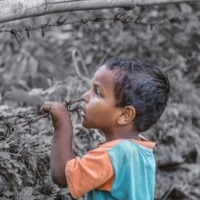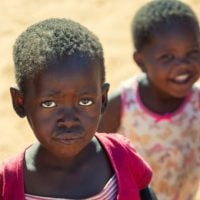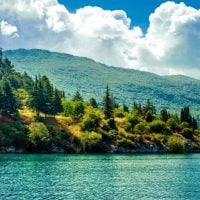Deadline: 3-Mar-22
The National Marine Fisheries Service (NMFS), National Oceanic and Atmospheric Administration (NOAA), Department of Commerce have announced the 2022 Chesapeake Bay Watershed Education and Training (B-WET) Program/School District Programming.
The NOAA Bay Watershed Education and Training (B-WET) Program is an environmental education program that promotes locally relevant, experiential learning for students in kindergarten through 12th grade (K-12). B-WET was established in 2002 in the Chesapeake Bay watershed and currently exists in seven regions: Chesapeake Bay, Gulf of Mexico, New England, California, Pacific Northwest, Hawaii, and Great Lakes.
The goal of this funding opportunity is to support K-12 environmental literacy programs that provide students with Meaningful Watershed Educational Experiences (MWEEs) connected to their watershed and related professional development for in-service teachers, administrators, or other educators serving K-12 students. Watersheds are an excellent resource for environmental education. Tidal and non-tidal waters and the surrounding landscape provide hands-on, place-based laboratories where students can see, touch, and learn about their local watershed and the greater environment
Priorities
B-WET projects funded under this announcement will support the integration of MWEEs into curricular programs and direct implementation during the grant period.
- Implementing MWEEs in School Districts: Proposals submitted under the Implementing MWEEs in School Districts priority seek to build towards systemic MWEE programming in local districts. Chesapeake B-WET welcomes proposals that will result in a systemic MWEE and proposals that will build towards a systemic MWEE.
- Supporting School District Capacity for Environmental Literacy: Proposals submitted under the Supporting School District Capacity for Environmental Literacy priority seek to enhance support systems within one or more school districts (or one or more Intermediate Units in Pennsylvania) and their community partners with the ultimate goal of embedding systemic MWEEs into curriculum to establish a sustainable environmental literacy program.
Funding Information
- Under this announcement, NOAA anticipates that up to $900,000 may be available in FY 2022 to fund new applications, subject to appropriations. NOAA anticipates making 9-14 new awards. Projects should not exceed $100,000 annually in Federal funds.
- The project start date should be between July 1, 2022 and January 1, 2023. Applications should cover a project period of between one and three years.
Eligibility Criteria
- Eligible applicants are K-through-12 public and independent schools and school systems, institutions of higher education, community-based and nonprofit organizations, state or local government agencies, interstate agencies, and Indian tribal governments.
- Forprofit organizations, foreign organizations, and foreign public entities are not eligible to apply; however, for-profit and foreign organizations and foreign public entities may participate with an eligible applicant as a project partner.
- Likewise, Federal agencies are not eligible to receive Federal assistance under this announcement, but may be project partners.
- NOAA will consider applications serving school districts outside the watershed boundary but within the states of Delaware, Maryland, Pennsylvania, and Virginia and the District of Columbia. These states represent those who have expressed support for the Environmental Literacy Goal of the Chesapeake Bay Program.
- The Department of Commerce/National Oceanic and Atmospheric Administration (DOC/NOAA) is strongly committed to increasing the participation of Minority Serving Institutions (MSIs), i.e., Historically Black Colleges and Universities, Hispanic-serving institutions, Tribal colleges and universities, Alaskan Native and Native Hawaiian institutions, and institutions that work in underserved communities. The NOAA Chesapeake Bay Office (NCBO) encourages proposals involving any of the institutions.
For more information, visit https://www.grants.gov/web/grants/view-opportunity.html?oppId=336587









































